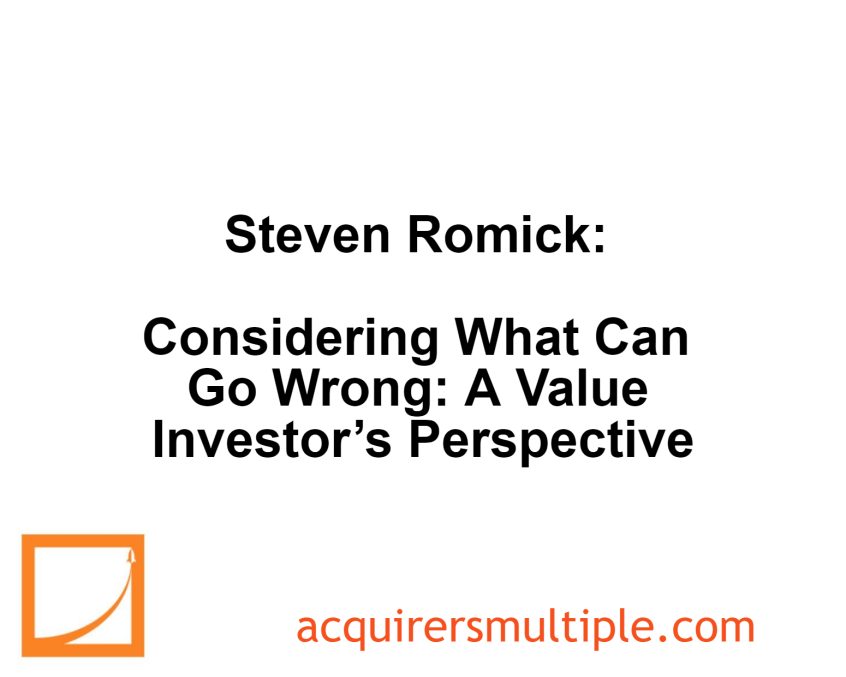In this interview with WealthTrack, Steven Romick discusses his value investing perspective on always trying to consider what can go wrong with an investment. Here’s an excerpt from the interview:
Romick: I think if you need to always look at things from two sides. What can go right as well as what can go wrong. Just the nature of a value investor.
Or at least this value investor is that considering what can go wrong is just about losing money by trying to protect yourself and protect your capital and protect our clients’ capital. So we always think about balancing what can go right or can go wrong.
But it’s really important to place a lot of weight, at least for me and our team, to, you know, where can we be wrong? And any thesis we have where we really like a certain company or a certain asset security, we’re very mindful of taking our bullish point of view and then inverting our thesis to, you know, to position it like, okay, what if we got it wrong?
What can happen that could cause us to lose money.
Host: And how do you do that?
Steven Romick: If you think about businesses and how they’ve evolved over the last 20 years, there’s been more disintermediation that we’ve seen than any other point in time in history. And more businesses have fallen by the wayside.
So when we look at a business, when we think about what can go wrong, we think about what competitors are doing, people within the industry today and people who are new entrants to that industry, you know, that are coming in. So if you think about businesses that you look at retail.. and you look at how Amazon came into the market and upended, you know, the laws of retail, it took brick and mortar and sent it up into the digital universe why some companies were succeeded versus others that didn’t.
So if you look at businesses, you know that did fare relatively well after a lot of capital investment and false starts along the way would include Walmart, it would include Target.
But why didn’t Sears, you know, succeed?
What did they do wrong? So when we looked at different retailers in our portfolio, we thought about what could go wrong. We owned a fair amount of retail and we ended up selling all of our retail.
And now the mistake that we made, you know, error of omission, was not actually having bought Amazon coming out of the great financial crisis, we were very mindful of what Amazon was doing to the retail landscape.
And we just, you know, unfortunately leaned away from retail but not into Amazon.
You can watch the entire discussion here:
For all the latest news and podcasts, join our free newsletter here.
Don’t forget to check out our FREE Large Cap 1000 – Stock Screener, here at The Acquirer’s Multiple:



